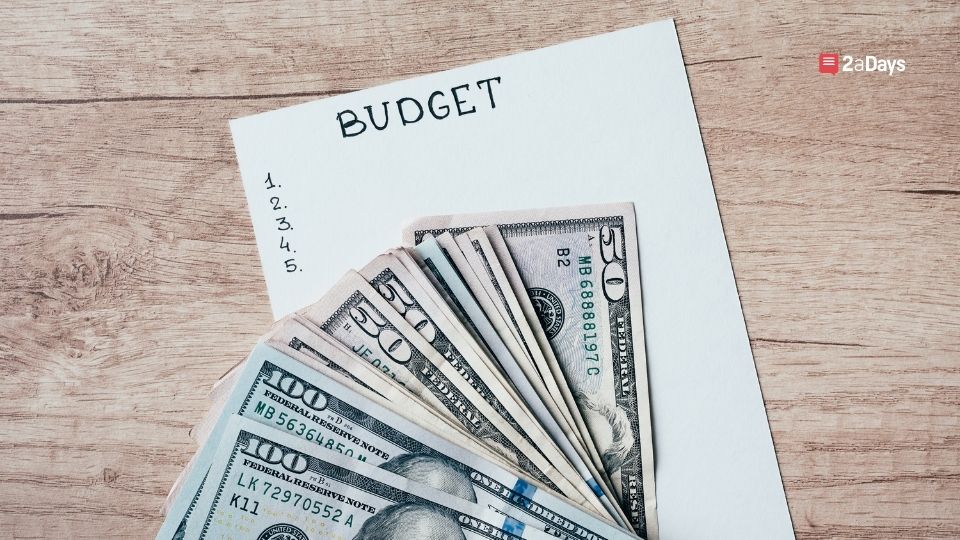Budgeting Basics
Budgeting is a crucial step in financial planning and can help individuals achieve their desired financial goals. But, budgeting isn’t always easy – it takes time, practice, and understanding of the basics to create a successful plan. If you’re looking for money-wise tips on how to craft an effective budget that works for you, click here to get a loan from money-wise.
The first step in creating your budget is determining your net income – or what’s left after taxes and other deductions are taken out of your paycheck. Next, list all of your fixed expenses such as rent or mortgage payments, utilities, car payments and insurance premiums. Once those are accounted for, move onto variable expenses like shopping trips or eating out with friends. Lastly identify any additional sources of income such as investments or side hustles that could contribute toward achieving your savings goal.
Track Spending
A budget is an important part of financial planning and tracking spending is a key element of creating a successful budget. Knowing where your money is going each month can help you avoid overspending, save for future goals and ensure that all your bills are paid on time. But where should you begin? Here are five tips to help you get started with tracking your spending:
First, identify fixed expenses such as rent or mortgage payments, utilities, car payments and insurance costs. These will remain the same each month so it’s easy to determine how much they’ll cost ahead of time. Additionally, keep track of variable expenses such as groceries, entertainment or clothing purchases as these can vary from month to month.
Second, establish how much money you’re willing to spend in each category on a monthly basis.

Set Financial Goals
Setting financial goals is an important step in budgeting that can help individuals manage their money more effectively and stay on track to reach their financial objectives. Knowing where you are financially today, understanding what your needs are, and setting realistic goals that you can execute will help ensure success.
When creating a budget, it is essential to set financial goals that align with your current lifestyle and future ambitions. For example, if starting a retirement fund or buying a home is part of the plan, understanding how much needs to be saved each month towards those goals should be included in the budget. Setting up individual savings accounts for different objectives can help keep everything organized as well as provide motivation to stick with these goals. Additionally, tracking spending through various apps or spreadsheets can also be great tools for staying focused on reaching those goals.
Make a Plan
Making a budget plan is an essential part of managing your finances and achieving financial goals. Whether you are trying to save for a big purchase or simply want to get on track with your spending, creating a budget plan can help you do just that. Here are five tips for budgeting that will help you reach your desired financial objectives.
Firstly, it is important to evaluate all sources of income and compile an accurate picture of how much money is coming in each month. This includes pay checks, investments, bonuses, tax refunds and any other sources of income. Secondly, make sure to list all expenses such as rent or mortgage payments, utilities bills, groceries and loan repayments; make sure not to forget any regular payments or subscriptions too! Once all costs have been accounted for it will be easier to estimate the total amount being spent each month.

Automate Payments
Automate Payments is a great way to streamline your finance budgeting and ensure that you never miss a payment. By setting up automatic payments with your bank, credit card or other financial institution, you can save yourself time and money. It also allows you to stay organized and on top of your finances with minimal effort. Here are five tips for getting the most out of automating your payments:
First, make sure that you have enough funds available in the account from which automated payments will be taken. This ensures that there won’t be any late fees due to insufficient funds and protects your credit score against potential damage. It’s also important to remember when bills are due so that payments are not made too early or late due to automated payment schedules. Additionally, it is important to review all transactions regularly so that any discrepancies can be identified quickly and resolved immediately if necessary.
Review Finances Regularly
When it comes to budgeting, there are a few tips that you can follow to ensure that your finances stay in check. Reviewing your finances regularly should be an essential part of any budget plan. By doing so, you can make sure that your expenses and income remain balanced and on track with your overall financial goals.
It is important to review your finances on a regular basis in order to stay on top of things. This will help you identify areas where you may need additional funds or where you need to cut back on spending. It will also provide clarity into how much money is going out each month and what bills are coming due when. Additionally, it allows for better planning for future expenses as well as preparing for unexpected costs such as repairs or emergency medical costs.

